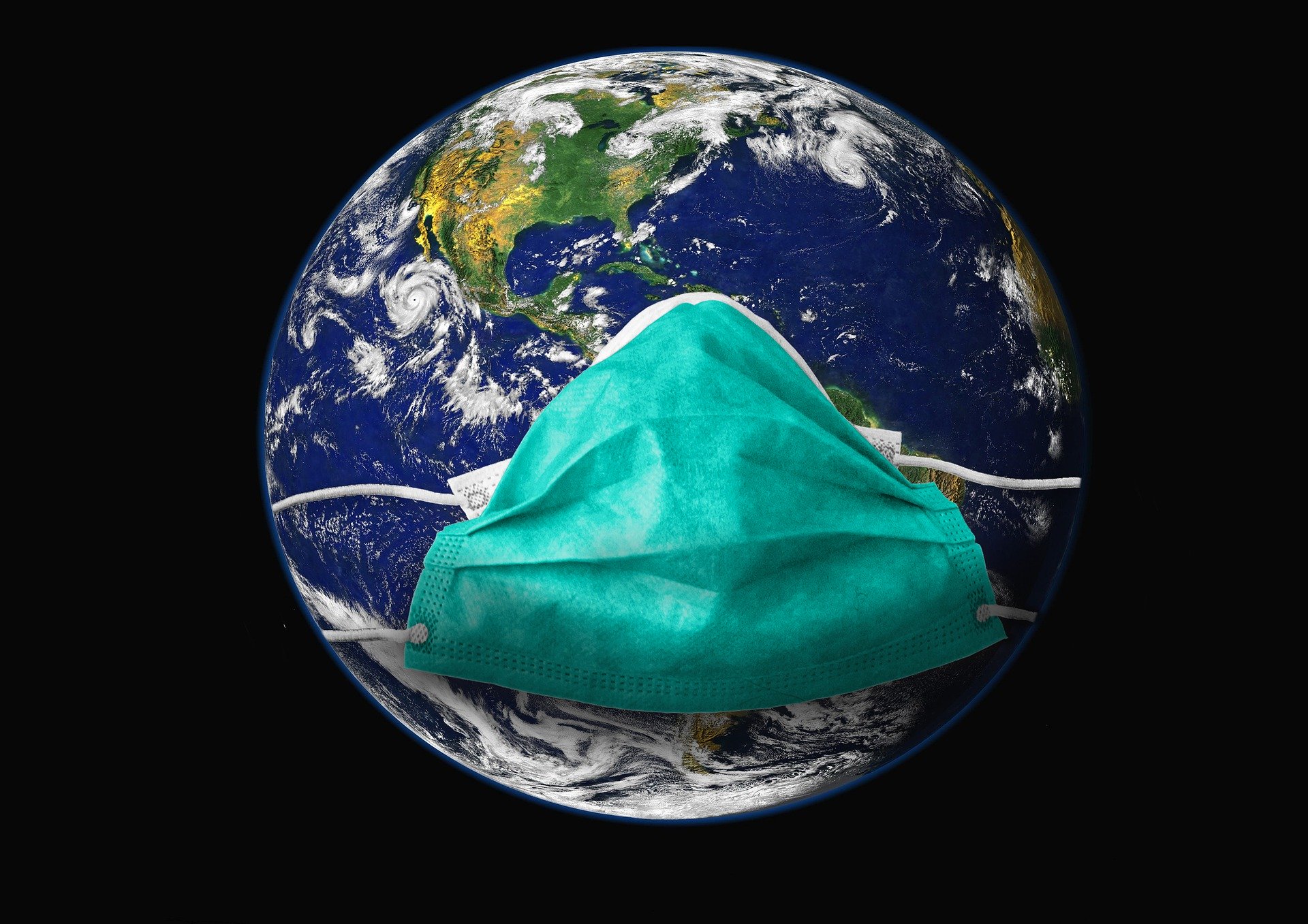 Every major crisis needs a guilty party. In the midst of the Coronavirus pandemic, this culprit is globalization. Upon closer inspection, however, the opposite is true: globalization is our best solution. (Picture: Pixabay)
Every major crisis needs a guilty party. In the midst of the Coronavirus pandemic, this culprit is globalization. Upon closer inspection, however, the opposite is true: globalization is our best solution. (Picture: Pixabay) The Coronavirus crisis serves critics of globalization as a point of attack for dreams of re-nationalization. However, globalization is not the problem—it is the best solution we have.
Every major crisis needs a villain. The financial crisis of 2008 was blamed on the greedy investment bankers, and the subsequent euro crisis was blamed on the lazy Greeks. According to many, blame for the current Coronavirus pandemic and its economic consequences should go to globalization. After all, globalization, with its interdependencies and cross-border movement of goods and people not only spreads the COVID-19 virus much faster, but it also leads to supply bottlenecks and economic chain reactions. Meanwhile, protectionism is making a big comeback, and it is not only the faltering U.S. president who would prefer to re-nationalize the economy today rather than tomorrow.
This Is Not Fourteenth-Century Venice: Thank God!
Most people living in the western world today have never faced a major influenza pandemic. The last major pandemics were the Spanish flu, which killed between 20 and 50 million people between 1918 and 1920, and the Asian and Hong Kong flu in the 1950’s, each of which killed between 1 and 4 million people. Most of the industrialized nations were spared the Swine flu, Bird flu, SARS, Zika, and Ebola. While the Spanish flu was probably first spread by the military, nowadays air traffic and trade are the incubators for a global spread of viruses. As long as there is civilization, people travel and trade. The fewer fixed borders (à la Korea) there are, the greater the risk of a pandemic. We will have to come to terms with that.
Globalization has simplified access to information in an unprecedented way.
And it is worth the elevated risk, because unlike in the fourteenth century at the time of the “Black Death,” we no longer stand isolated and helpless when a new disease breaks out. We owe that to globalization.
Globalization has simplified access to information in an unprecedented way. Scientists all over the world can access data from their colleagues virtually in real time, and physicians can exchange information about successful treatment methods. The global exchange of information has meant that we in Europe knew a great deal about the effects, progression, and spread of the virus even before the first cases occurred here. Academic journals are currently removing their paywalls for relevant research work, and the latest manuscripts can be shared directly on what are called preprint servers. Of course, this does not just happen, but it requires trust and personal acquaintance. The development towards a powerful, digital, and global science was made possible only through the countless exchange and guest researcher programs, international conferences, and cooperative efforts between universities. None of this would have been possible without an open and affordable travel infrastructure.
Global Production Never Stands Still
Globalized production is certainly fragile, and a small grain of sand in the microchip can compromise global supply chains. The reaction of the stock markets and the sometimes gloomy expectations about the economy illustrate this. But what would a pandemic look like in a protectionist world? While Europe probably has yet to reach the peak of its infection figures, the first companies affected in Wuhan, China (where it all began) are already allowed to open and produce again. If public life in Germany comes to a similar halt as in China, we know that production is already starting up again in other parts of the world. Globalized production means a greater dependence on partners, but also a lower dependence on the region. In times of regional crises, this can be a bargaining chip.
Poverty Is the Greatest Health Risk
The most important reason to hold on to globalization is that poverty is more dangerous to public health than any other factor. Globalization has raised many parts of the world to a level of development that enables the entire population to receive excellent medical care. For contemporary Germans, the medical treatment in case of an infection looks the same no matter one’s income. We can afford to send employees to work from home or work reduced hours. Everyone has access to running water, soap, and food—even if public life grinds to a halt for a few weeks.
Opponents of globalization claim that only the elites benefit from this. The handling of COVID-19 shows how incorrect they are. There are, of course, clear inequalities, but the progress achieved through globalization enables everyone to live better, safer, and longer lives.
The Coronavirus pandemic will cost us a lot, and every death is an individual tragedy. But epidemics have always existed—we have just never been better prepared for them as we are today. The globalized world community can now show what it can do through international cooperation in science, politics, and business. Let us hope that the Donald Trumps of this world do not prevent anyone from doing so.
This article was first published under the same title by the Berlin-based Prometheus Institut on March 13, 2020. Reprinted with kind permission.
Translated from German by Thomas and Kira Howes.



